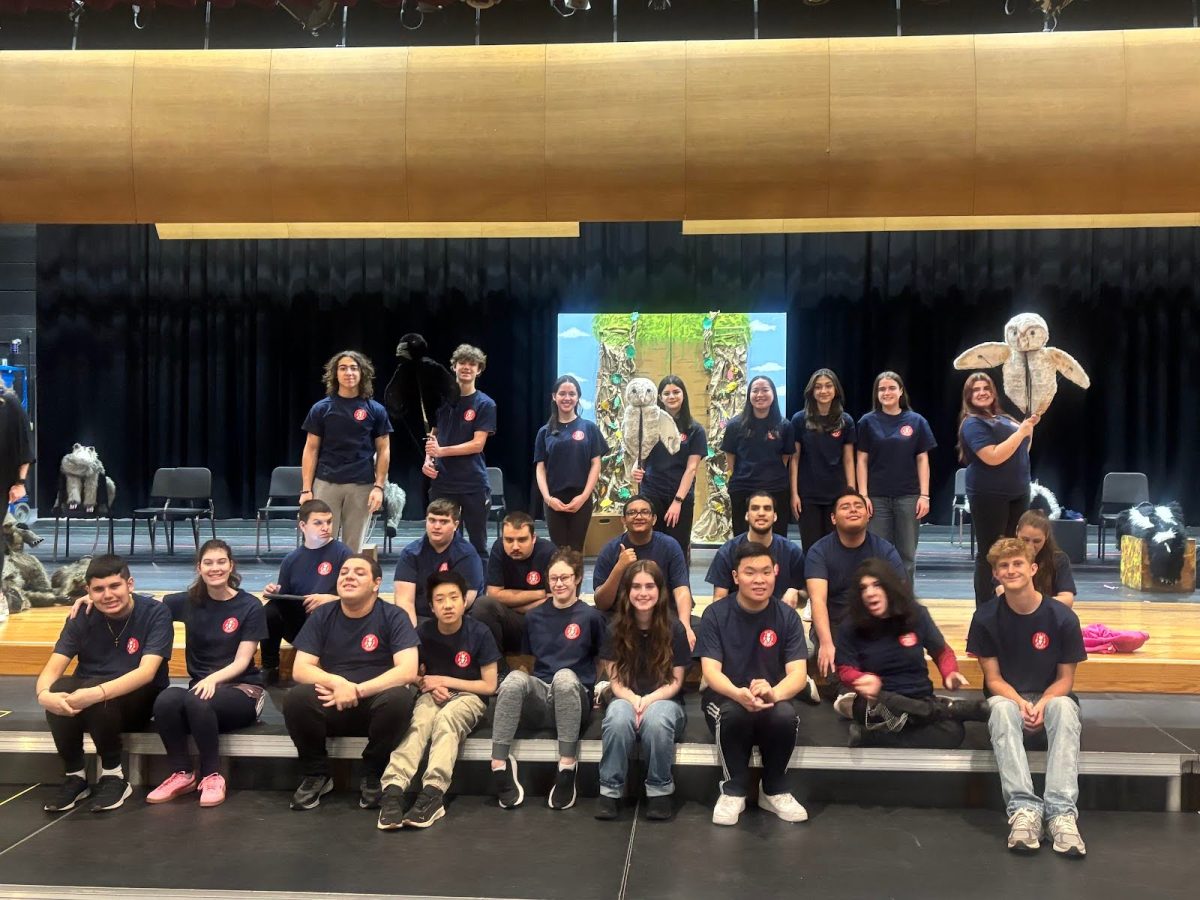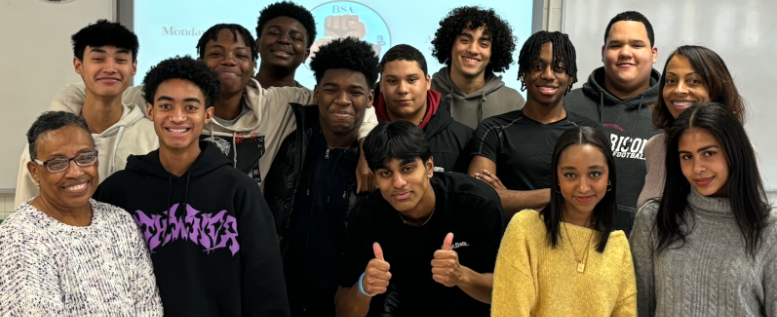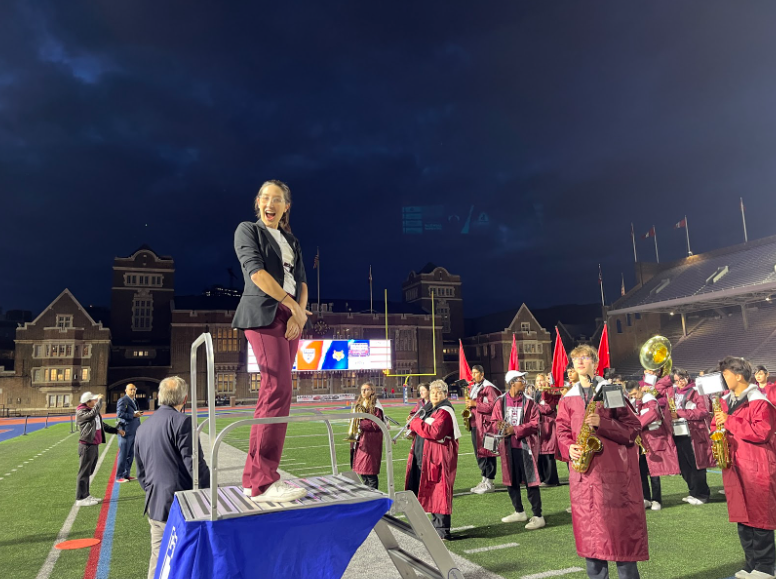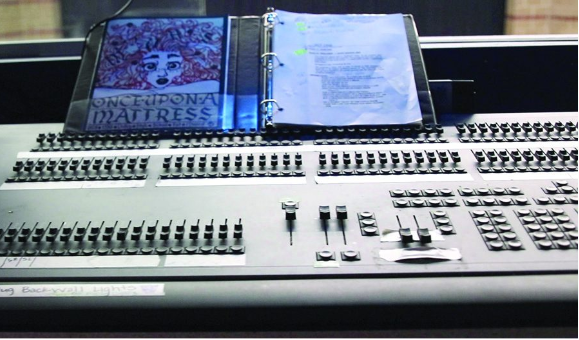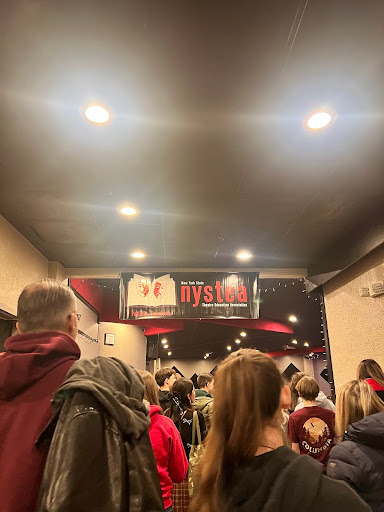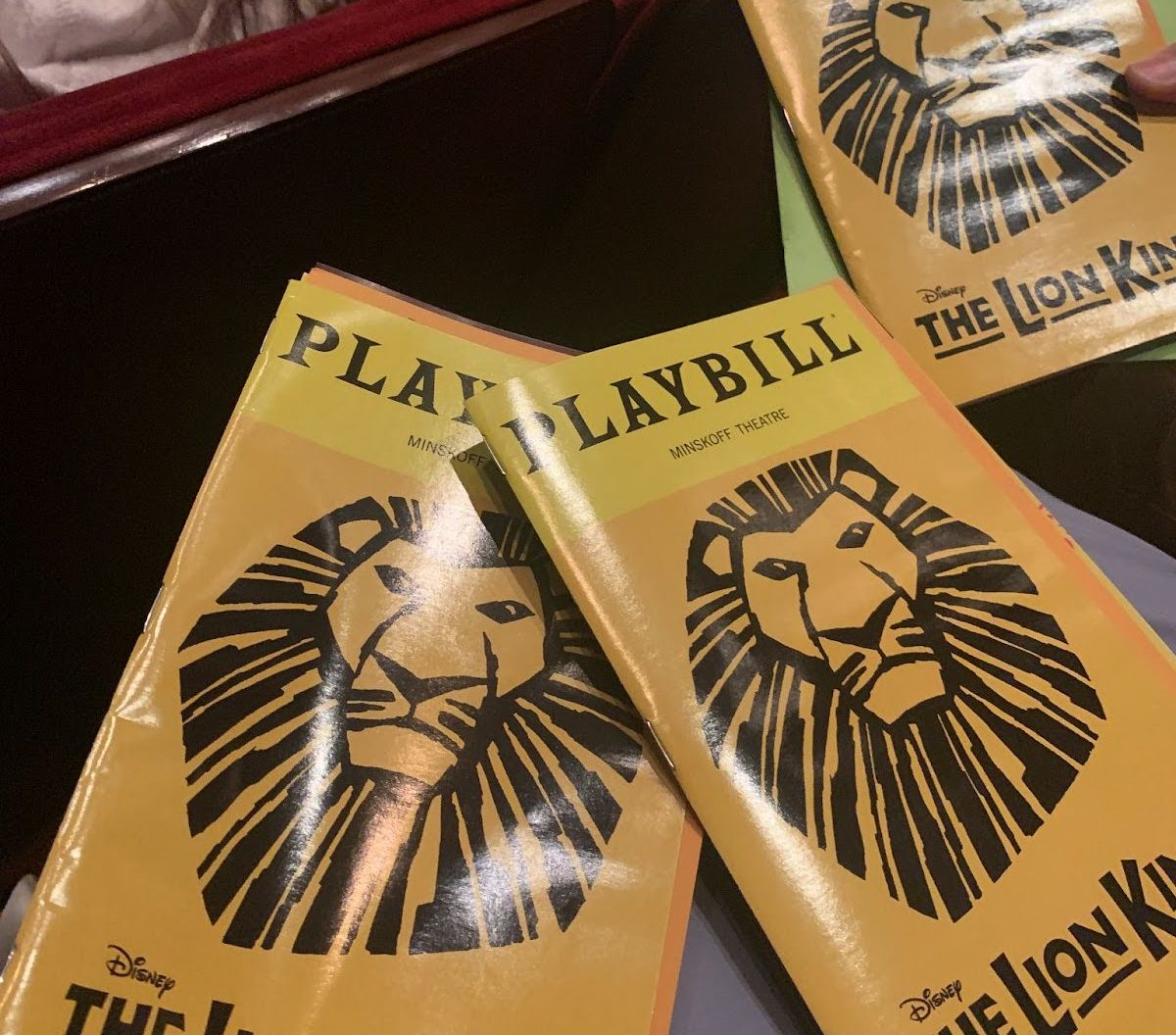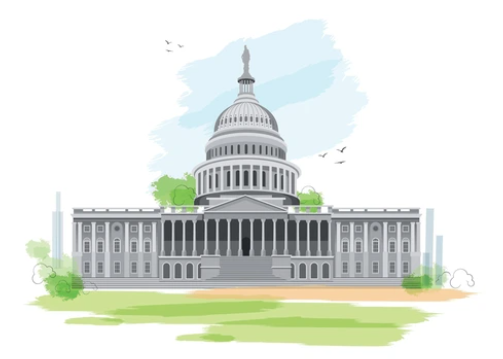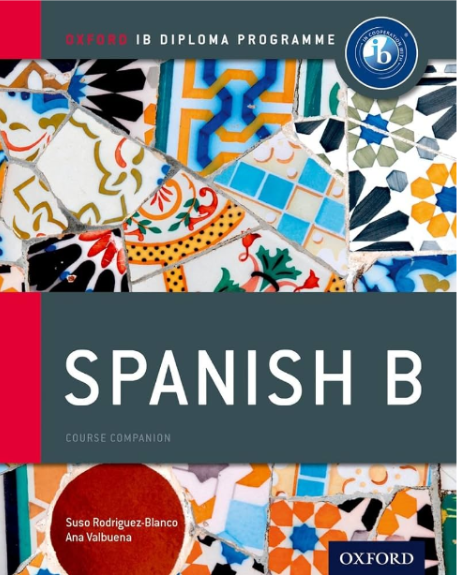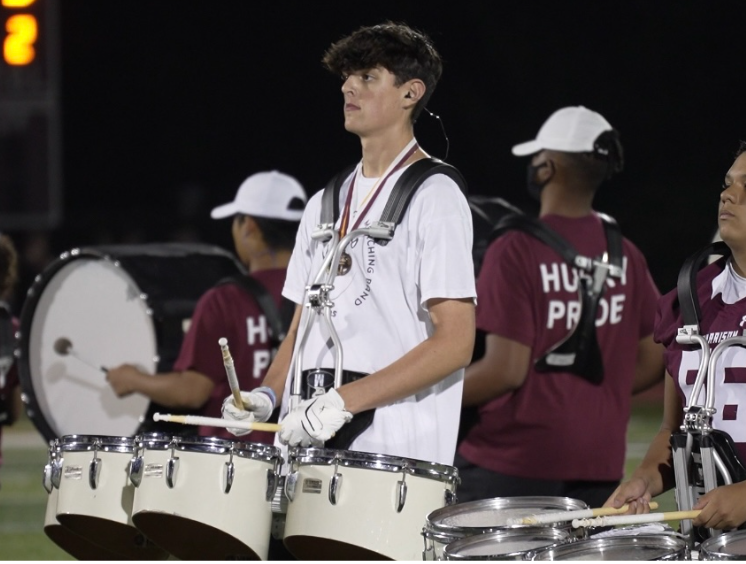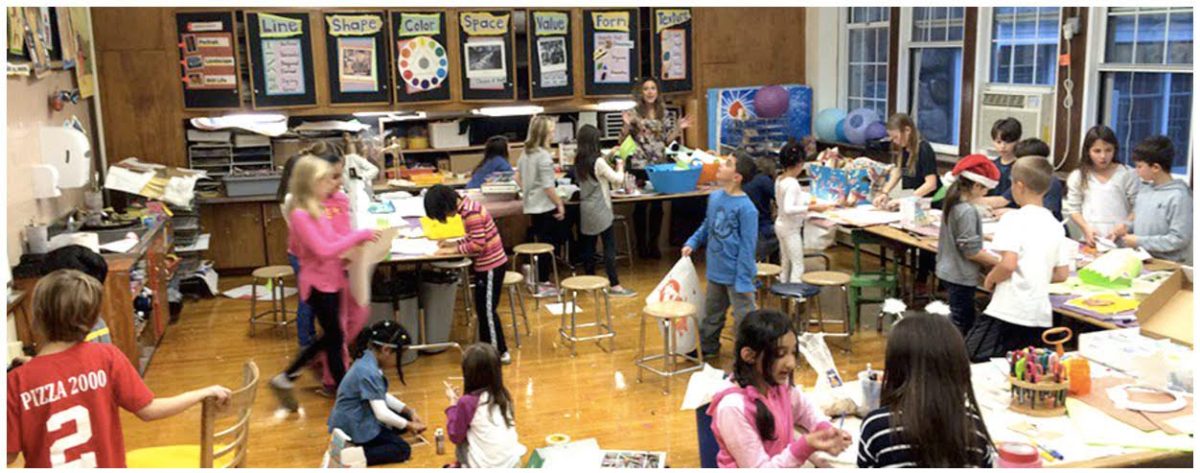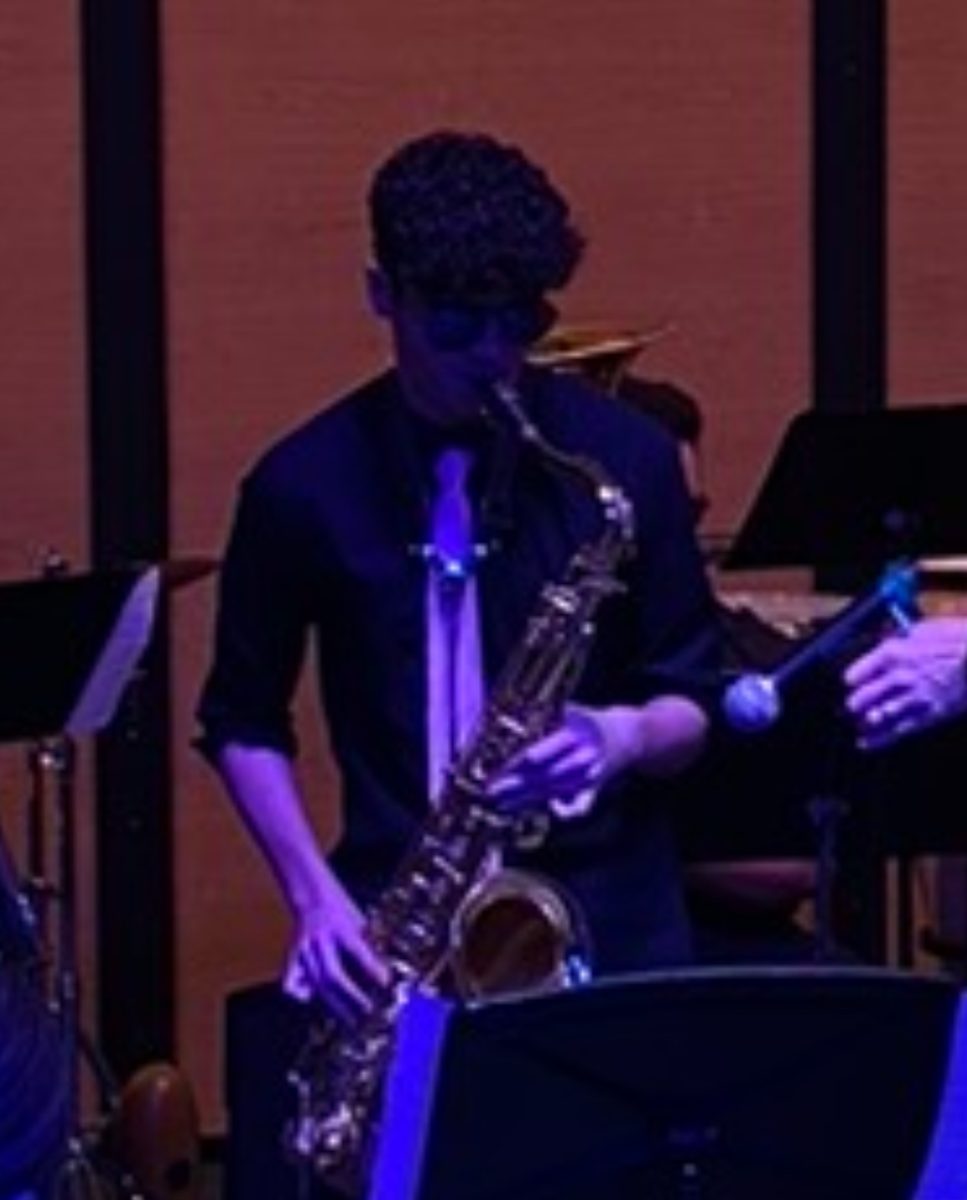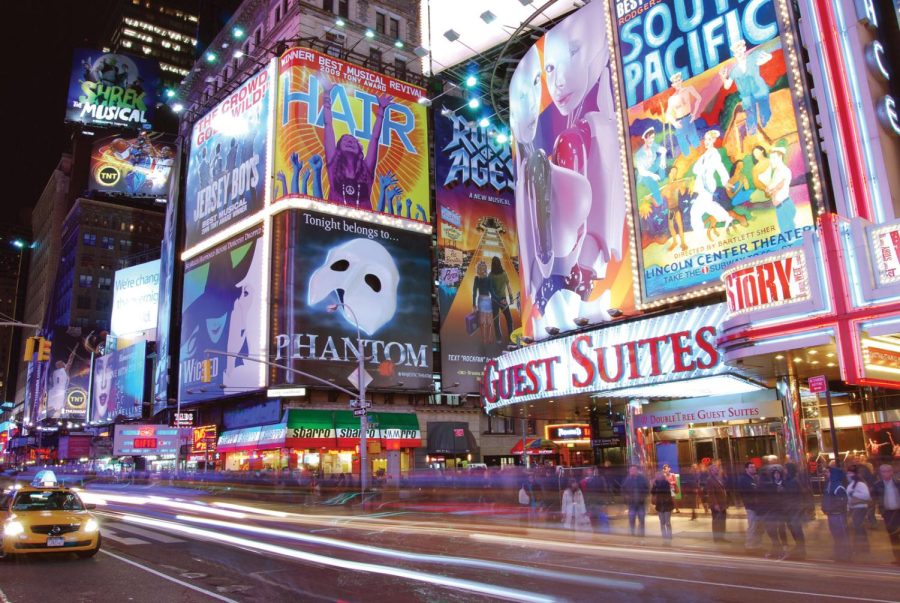Broadway’s Omicron Intermission
Broadway Advertising in Times Square
February 9, 2022
Anyone familiar with theatre knows the phrase “The show must go on!” But what happens when the show can’t go on? This is a question that multiple Broadway directors, actors, and crew members are currently facing today as more and more shows close their doors.
On January 13, the hit Broadway play To Kill a Mockingbird based on the famous Harper Lee novel of the same name announced that it would be closing down and going on a hiatus starting on January 16th. Said hiatus will allegedly end on June 1st as the play reopens not at the Shubert Theatre, its current home, but at the Belasco Theatre a block away. To Kill a Mockingbird credits this hiatus to the rising number of omicron COVID cases sweeping the country.
To Kill a Mockingbird isn’t the only Broadway show to arrive at an early curtain call. Mrs. Doubtfire, the first show to try out a brief shutdown, began its hiatus on January 9th and is expected to return on March 15. It’s been a shock and a let-down for all of the cast and crew. Brad Oscar, a supporting actor in the musical, told the Washington Post, “I mean, I’m not happy about it, and God knows, especially after the last two years, it’s been so good to get back to work, to actually be making a salary and all that. It’s heartbreaking, it’s tough. But this is the reality of the business.”
While the prospect of closing down and sending everyone in a production is bleak, the shows that have decided to remain open arguably have a tougher time. Shows like Come From Away, for example, have been faced with the monumental task of keeping their show running as exposed or sick actors are stuck in quarantine. The show’s touring cast reportedly has been flying in actors from other states to fill in for others who have gotten sick. So much of the cast was missing on January 13 that the performances for not only that day, but for the 14 and 15 as well, were cancelled as the production was unable to find enough actors to cover all the missing roles. A postponed show is being worked on for those who bought tickets for the cancelled dates.
The struggle to find replacements goes back as far as late December in 2021. The long awaited revival of Music Man was only open for a few days of previews before its lead actress, Sutton Foster, was diagnosed with COVID and needed to be quarantined. Her understudy, Kathy Voytko filled in for her that afternoon not only for her first performance as Marian, but her first day rehearsing for the role as well. Voytko, who on any given day was prepared to play eight different parts, apparently was told at 12 PM that Foster was ill and had her first ever rehearsal at 1PM before her show later that night. Her co-star Hugh Jackman thanked her and understudies everywhere at curtain call for their dedication to their craft and called them the “bedrock of Broadway.”
Of course, the worst possible outcome for any show is to have a permanent early closure as shows like Jagged Little Pill, Waitress, and Ain’t Too Proud have done. Keeping a Broadway show open is expensive and with rising COVID cases some shows just haven’t made enough money to go on. While theatre fans everywhere are desperate to keep their favorite shows open for as long as possible the question remains: would it be better for Broadway to take a quick intermission?

